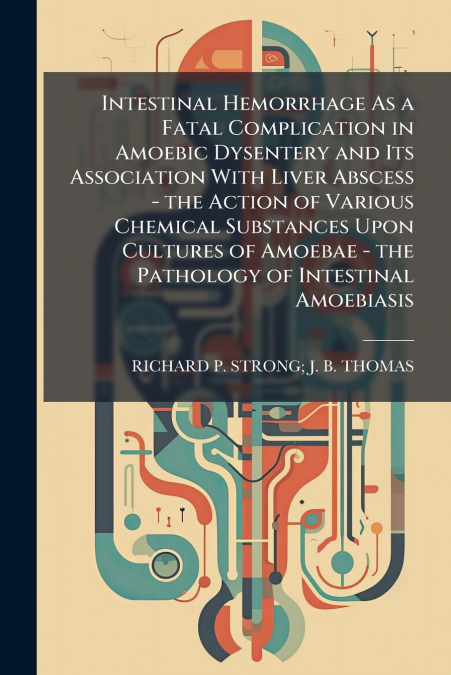
RICHARD P. STRONG / J. B. THOMAS
'Intestinal Hemorrhage As a Fatal Complication in Amoebic Dysentery and Its Association With Liver Abscess - the Action of Various Chemical Substances Upon Cultures of Amoebae - the Pathology of Intestinal Amoebiasis' explores a critical and often fatal complication of amoebic dysentery. Authored by Richard P. Strong and J.B. Thomas, this historical medical text delves into the intricate relationship between intestinal hemorrhage and liver abscesses within the context of amoebic dysentery. The study further investigates the effects of various chemical substances on amoebae cultures and provides a detailed examination of the pathology of intestinal amoebiasis.This work offers invaluable insights into the understanding and treatment of amoebic dysentery during the period it was written. It remains a significant resource for medical historians and researchers interested in the evolution of tropical medicine and gastroenterology. Its detailed observations and experimental findings contribute to the broader historical understanding of infectious diseases and their management.This work has been selected by scholars as being culturally important, and is part of the knowledge base of civilization as we know it. This work was reproduced from the original artifact, and remains as true to the original work as possible. Therefore, you will see the original copyright references, library stamps (as most of these works have been housed in our most important libraries around the world), and other notations in the work.This work is in the public domain in the United States of America, and possibly other nations. Within the United States, you may freely copy and distribute this work, as no entity (individual or corporate) has a copyright on the body of the work.As a reproduction of a historical artifact, this work may contain missing or blurred pages, poor pictures, errant marks, etc. Scholars believe, and we concur, that this work is important enough to be preserved, reproduced, and made generally available to the public. We appreciate your support of the preservation process, and thank you for being an important part of keeping this knowledge alive and relevant.